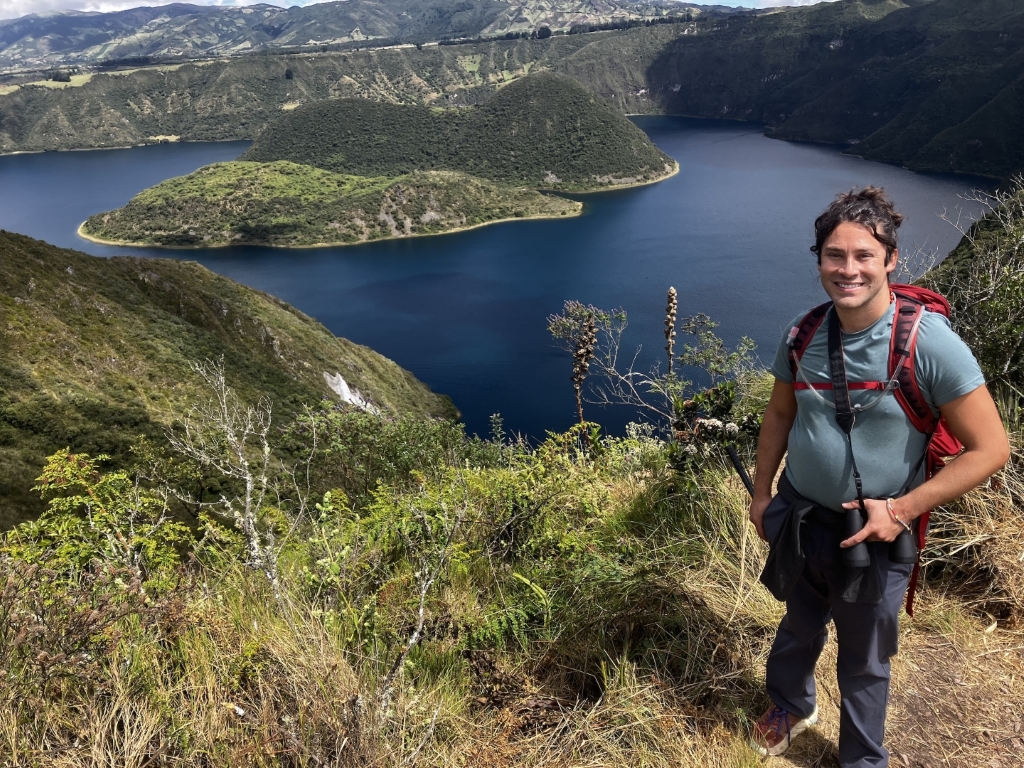Last summer, upper school science teacher Eric Johnson middle school science teacher Raji Swaminathan participated in the Vegesna Foundation Teacher Excellence Program. Johnson spent a week in the Ecuadorian Andes and Amazon learning about Indigenous science from Kichwa farmers, artists and activists. Among the many highlights of the trip was a three-night stay with a Kichwa family living at the base of Cotatachi, one of Ecuador’s tallest peaks, where they learned more about the way Indigenous peoples view land “as sacred relatives.”
During their stay, Johnson noticed that, like many Indigenous peoples in North America, the Kichwa believe that “we must ask for permission and give thanks to the territories that we utilize and occupy. Many western cultures see land as private property, an object to be purchased and manipulated in whatever way they want,” they said. “[In Indigenous science,] trees and rivers and land are closer to a sibling than to an object. It is a relative that is to be celebrated. asked permission for usage and taken care of from the beginning of one’s life.”
Johnson said they plan to incorporate the knowledge they gained into their classroom as units that explore frameworks if Indigenous science principles.
Swaminathan traveled to England to explore the life of Sir Isaac Newton, from his childhood to his professorship at Cambridge University to his final resting place at Westminster Abbey. “In this day and age where everyone is enamored by technologies like smartphones and chatGPT, we have forgotten the value of progress we have made in basic sciences,” she said. Hoping to reinvigorate interest in these basic sciences, she wished to motivate students by taking them through the life of one of history’s most famous scientific figures. “For the past 23 years at Harker, I have spent most of the first semester classes discussing concepts from Newtonian physics with my seventh grade students,” she said.
Her research also took her to classes in astrophysics and particle physics at Cambridge for an overview of Einstein’s theories of relativity and quantum mechanics, taking part in interactive workshop sessions that previewed the next day’s material so students could arrive prepared. “This is an effective teaching style that helps students to learn on their own and ask questions,” she said.
Swaminathan said she hopes to take the knowledge she gained and present on Newton’s life and work in a way that students will find engaging. She also wants to introduce students to the work of scientists she believes are underappreciated, such as Henry Moseley and Jocelyn Bell, the discoverer of pulsars.
